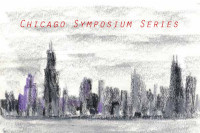Co-Director, King's Centre for Visualization in Science
The King's University
Chemistry plays a crucial role in making modern life possible. Yet the scale of the chemistry carried out by 7.6 billion people has both beneficial and destructive impacts on our planet and its people. The eyes of the world are drawn to the fact that human activity and chemical reactivity are inextricably intertwined, as many of the control variables for our planetary boundaries are quantified by fundamental chemistry measurements. Analysis shows that earth systems under particular threat from human activity include those related to climate change, the amount of fixed nitrogen, the phosphorus cycle, and ocean acidification. And biophysical changes, including those due to changing local climates, are projected to lead to substantially amplified rates of human displacement and conflict in the coming decades.
What kind of science and chemistry education is appropriate to prepare students for life in a world facing multiple, emerging global challenges? We will discuss two initiatives: a) The IUPAC Systems Thinking in Chemistry Education (STICE) project brings together a distinguished task force of global chemistry and chemistry education leaders to analyze and highlight the interconnected, complex systems that are at work for learners of chemistry. The STICE project will articulate learning objectives for infusing systems thinking, cross cutting concepts, and sustainability considerations into the formal teaching of chemistry, with a primary focus on gate-keeper general chemistry courses. It will also suggest strategies to guide the use of these learning objectives in the design of curriculum and selection of engaging pedagogies. (b) An exemplar using climate science as a rich context for teaching concepts in general chemistry will be presented.
Professor Mahaffy has sent us a link his paper that come out very recently and is attracting considerable interest: Reorienting chemistry education through systems thinking, Nature Reviews Chemistry at http://rdcu.be/J9ep.
Peter Mahaffy is Professor of Chemistry at the King’s University in Edmonton, Alberta, Canada and co-director of the King’s Centre for Visualization in Science, which provides interactive digital learning resources used by well over a quarter million students, educators and the public from over 100 countries each year. His current research and professional work is at the interfaces of systems thinking, chemistry education, visualization in science, sustainability/green chemistry, and the responsible uses of chemistry.
Mahaffy is a past-chair of the International Union of Pure & Applied Chemistry’s (IUPAC) Committee on Chemistry Education (CCE), where he co-facilitated the process to obtain UN designation of 2011 as the International Year of Chemistry and served on the IYC-2011 Management Committee. He was a charter member of the International Council of Science (ICSU) Committee on Freedom and Responsibility in the Conduct of Science, and served on the temporary working group on education and outreach for the Organization for the Prohibition of Chemical Weapons (OPCW), which won the Nobel Peace Prize in 2013. He served on the American Chemical Society (ACS) presidential working group to help professional chemists communicate climate science to the public, and is co-chair of the Province of Alberta’s Quality Assurance Agency for universities (Campus Alberta Quality Council).
Recent recognition for this work includes the Chemical Institute of Canada National Award for Chemistry Education; the 3M National Teaching Fellowship; the American Chemical Society James Flack Norris Award for Outstanding Achievement in the Teaching of Chemistry, the ACS-CEI Award for Incorporating Sustainability into Chemistry Education, the IUPAC CCE Award for Distinguished Contributions to Chemistry Education, and the Dow Canada WesTEC Distinguished Speaker Award.

